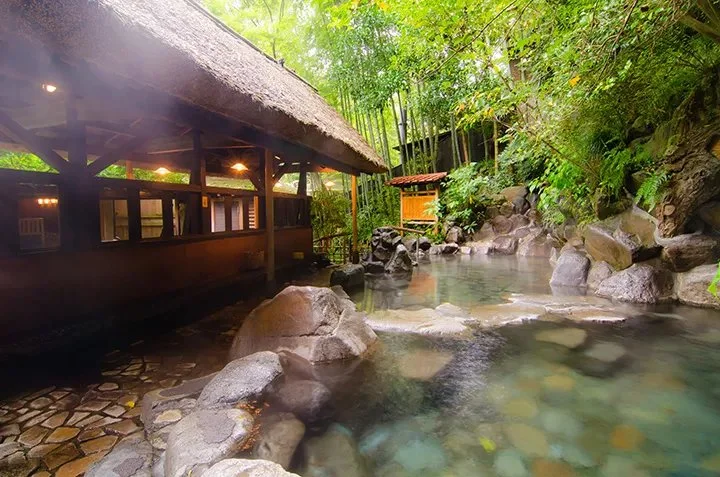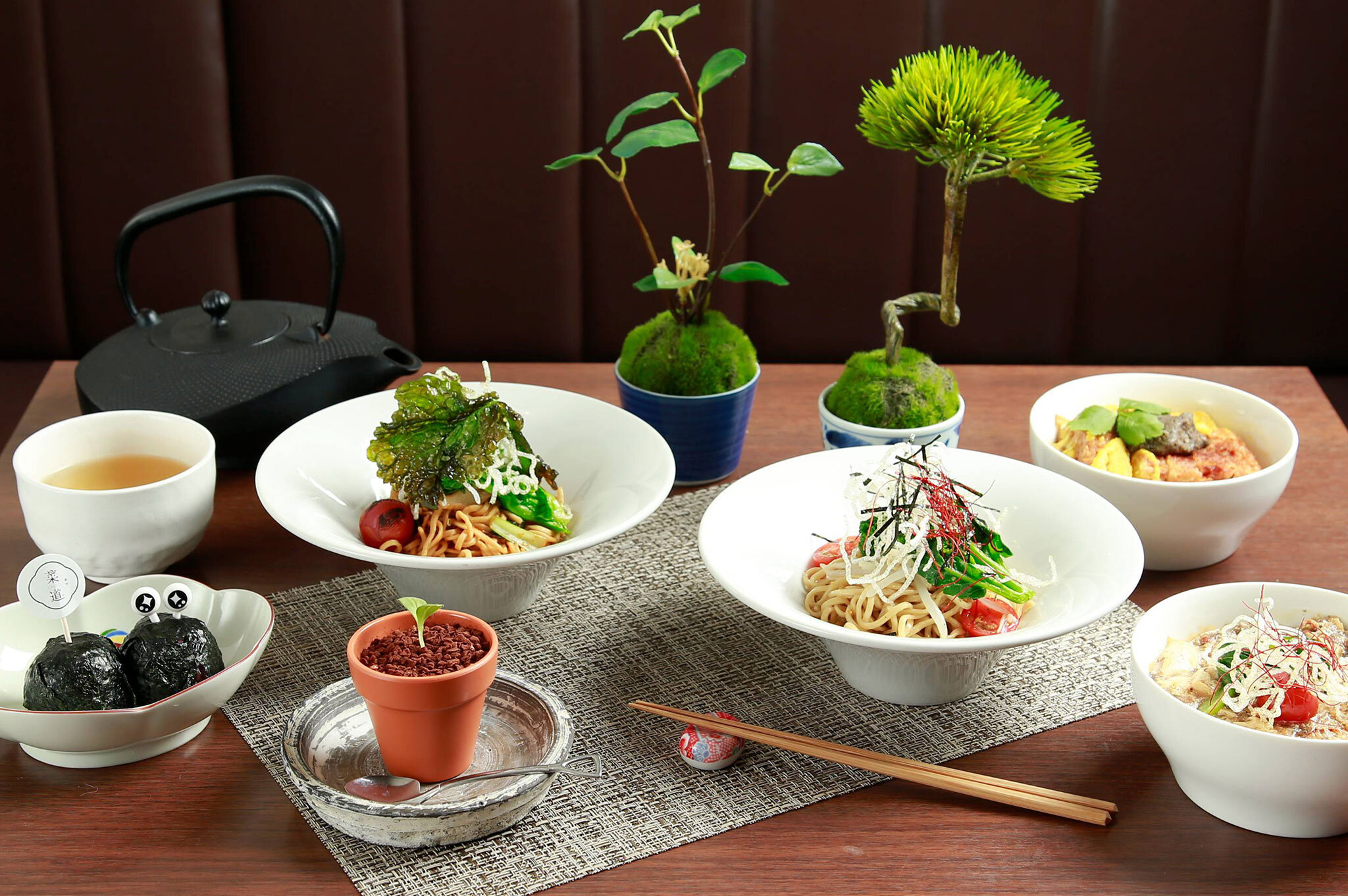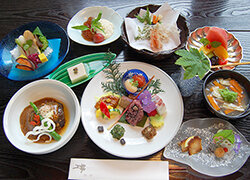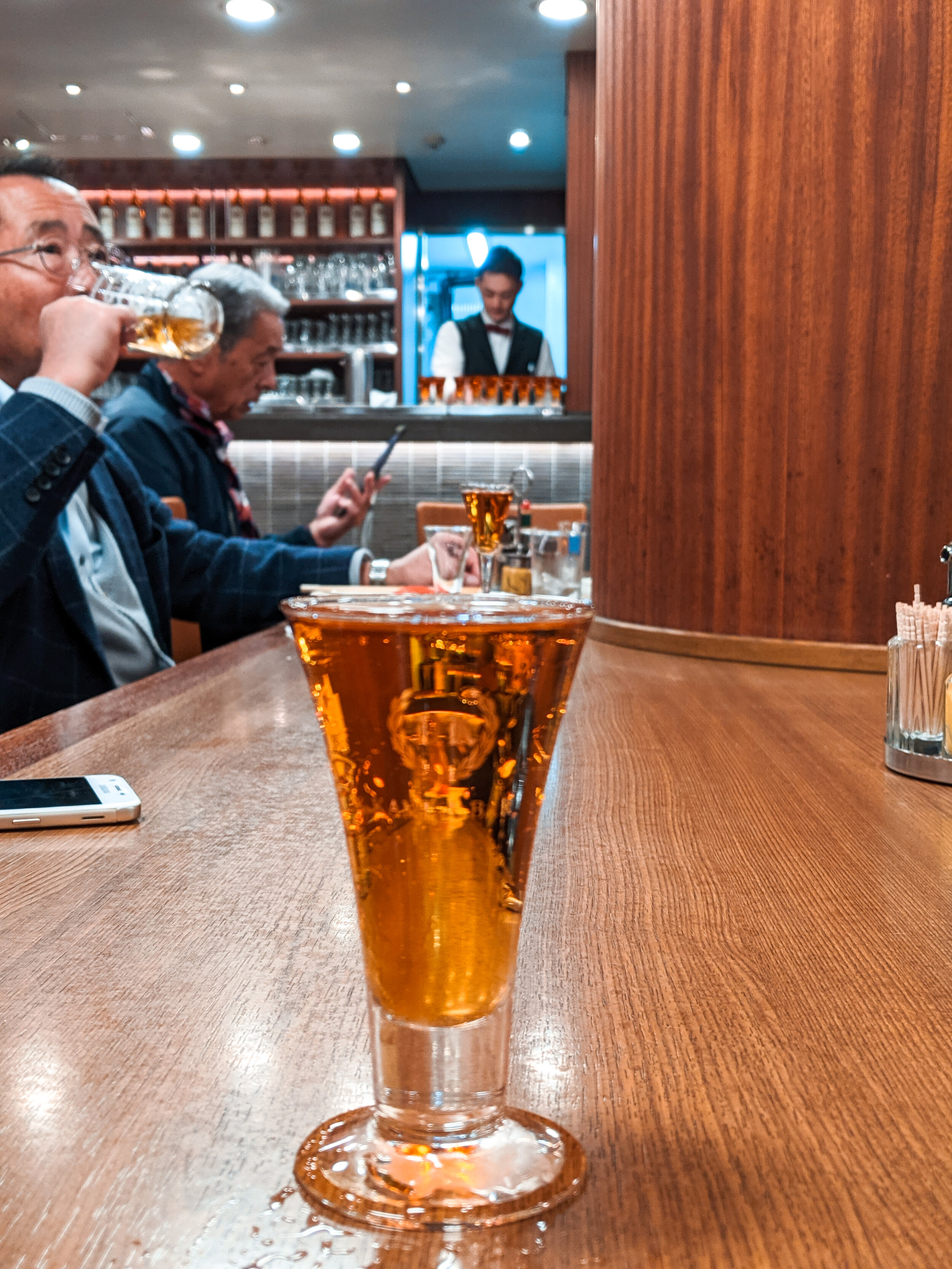If you are taking a tour of Hakone with us you can choose to visit The Hakone Open-Air Museum or indulge in a traditional Onsen experience. Visiting an Onsen for the first time can be a daunting experience, especially for those of us who are not accustomed to being naked around others! Fear not, you can hide your modesty with a small towel, or book a private room. Read on to understand more about what the Onsen experience entails.
Relaxing in an Onsen: A Must-Do in Japan!
Soaking in an onsen (hot spring bath) is one of the most relaxing experiences you can have on your trip to Japan. It’s the perfect way to unwind, wash away your stress, and enjoy a moment of pure tranquility. To keep this peaceful vibe going, it's important to follow the simple rules and customs of the onsen, so everyone can enjoy the experience.
Photo credit: tenzan.jp
Getting Started: What to Expect
Onsens are usually divided by gender—red curtains for women and blue curtains for men. Once you step through the curtain, take off your shoes and place them on the shelf. After that, head to the baskets or lockers to completely undress, and neatly stow away your clothes. You’ll want to bring along a small towel to the bath area, which serves multiple purposes: you can use it to cover yourself while walking, as a washcloth, to cool your head, or to dry off before heading back to the changing room.
Wash Up First
Before jumping into the bath, you’ll need to wash up at the shower stations. You’ll find stools, showers, and toiletries like soap, shampoo, and conditioner—though feel free to bring your own if you prefer. Make sure to rinse off any soap thoroughly. Once you're squeaky clean, you're ready to relax in the onsen!
Entering the Bath
The onsen water is typically around 40°C (104°F), so it’s a good idea to ease in slowly. If you’re feeling hesitant, use the bucket by the pool to pour some water over yourself first. One important tip: avoid letting your towel touch the water. Instead, place it on the side or keep it on your head (many soak it in cold water for a refreshing feel).
In the onsen, you can immerse yourself fully or sit on the edge, but always be mindful of others. If you’re with friends, keep your voices low to maintain the calm atmosphere.
Take it Easy
Remember to listen to your body. Don’t stay in too long—if you feel hot or lightheaded, step out and cool off for a bit. There are usually benches or cold baths nearby to help with that. Before you leave the bath area, dry yourself off so you don't drip water all over the changing room.
Finishing Up
In the changing rooms, you’ll often find water dispensers and grooming stations with brushes, hairdryers, and sometimes moisturizers. Once you're ready to go, make sure you’ve gathered all your belongings, and if you rented towels, drop them in the designated basket.
What About Tattoos?
If you have tattoos, it’s good to know that some traditional onsens in Japan still restrict entry for those with visible ink due to historical associations. However, some places are becoming more lenient, especially with foreign visitors.
If you have tattoos please tell us in advance. We can take you to a ‘tattoo-friendly’ onsen.
You Mentioned Private Rooms?
If you're feeling a bit shy or uncomfortable about bathing in public, no worries! We can arrange a private onsen room for you at a small additional cost. These private rooms offer a more intimate experience, allowing you to enjoy the onsen in complete privacy. However, do keep in mind that the private rooms are indoors, so while they’re cozy and convenient, they don’t provide the same connection to nature as the outdoor public onsen pools do. If soaking under the open sky with beautiful surroundings is what you're after, the public baths are the way to go!
Photo of the private onsen room on our Hakone Tour. Phot credit: yumotofujiya








































